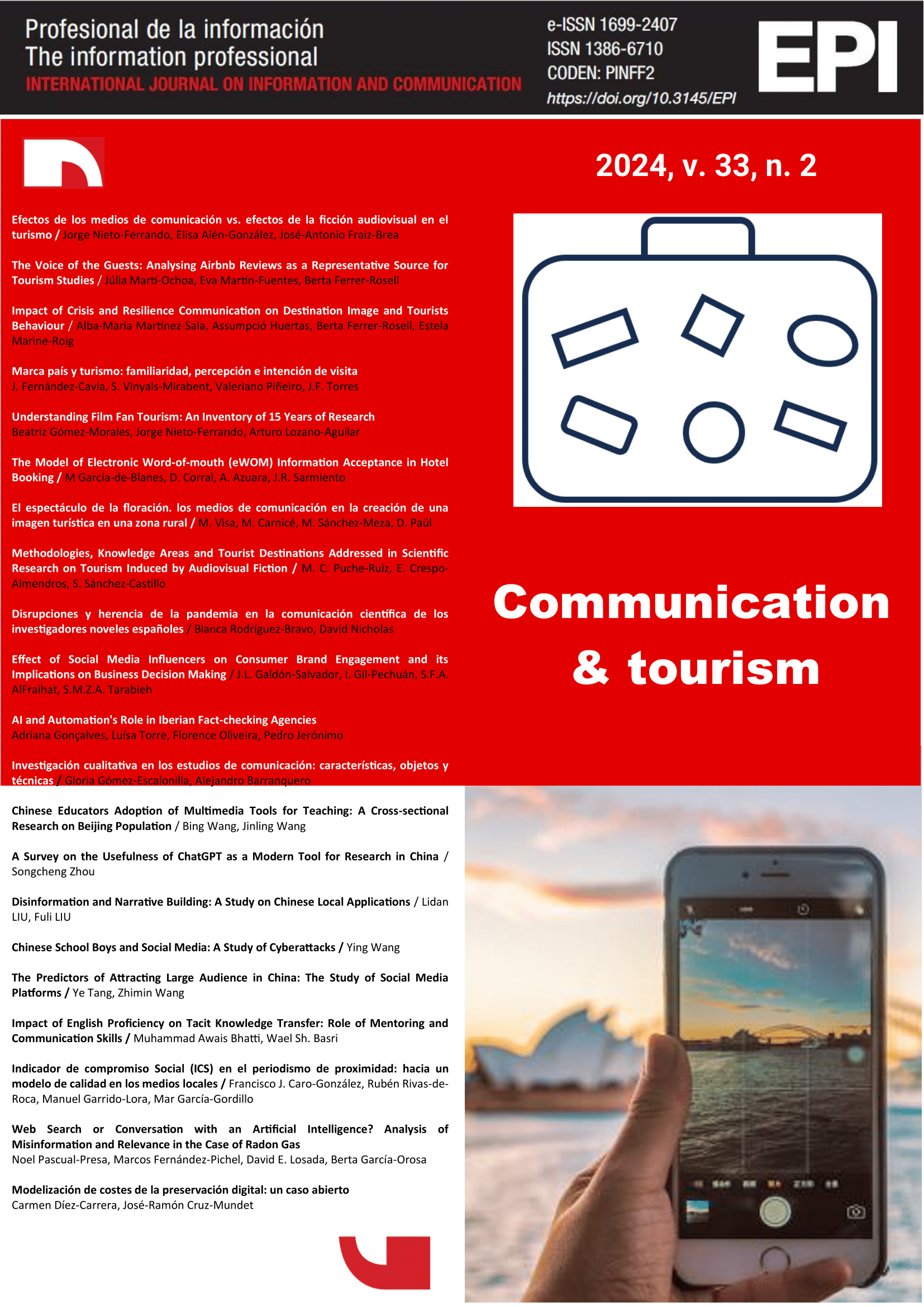AI and Automation's Role in Iberian Fact-checking Agencies
DOI:
https://doi.org/10.3145/epi.2024.0212Palabras clave:
Automation, Artificial Intelligence, Disinformation, Journalistic Practices, Fact-checking, VerificationResumen
The improvement of automation and AI tools has prompted transformations in journalistic practices, including factchecking. Fact-checking a posteriori has acquired special relevance due to the increasing amount of disinformation on
digital platforms and, given its breadth, automation became a need for verifiers to check content online. In this context,
AI-based and automation technologies are deployed in all stages of the fact-checking process: identification, checking
itself and distribution of content. Studies that map the uses of these tools in fact-checking are still incipient, a lacuna
that this study aims to fulfil. This proposal investigates the use of technologies in all specialised Iberian fact-checking
agencies, signatories of the International Fact-Checking Network (IFCN): Polígrafo, Verificat, Newtral and Maldita.es.
Through semi-structured interviews with representatives of these agencies, we found that automation and AI tools are
used in monitoring and filtering internet and media content; transcription of verifiable phrases; verification of images
and videos; selection of content submitted by the audience. Interviewees agree that automation has become crucial
for monitoring content on social networks, making fact-checkers work more effective, broader, and faster, despite some
ethical concerns. Finally, we advocate that technological tools are important allies, but the human element remains the
key to interpreting and deconstructing disinformation
Descargas
Descargas
Publicado
Cómo citar
Número
Sección
Licencia
Derechos de autor 2024 Profesional de la información

Esta obra está bajo una licencia internacional Creative Commons Atribución 4.0.
Condiciones de difusión de los artículos una vez son publicados
Los autores pueden publicitar libremente sus artículos en webs, redes sociales y repositorios
Deberán respetarse sin embargo, las siguientes condiciones:
- Solo deberá hacerse pública la versión editorial. Rogamos que no se publiquen preprints, postprints o pruebas de imprenta.
- Junto con esa copia ha de incluirse una mención específica de la publicación en la que ha aparecido el texto, añadiendo además un enlace clicable a la URL: http://revista.profesionaldelainformacion.com
La revista Profesional de la información ofrece los artículos en acceso abierto con una licencia Creative Commons BY.




